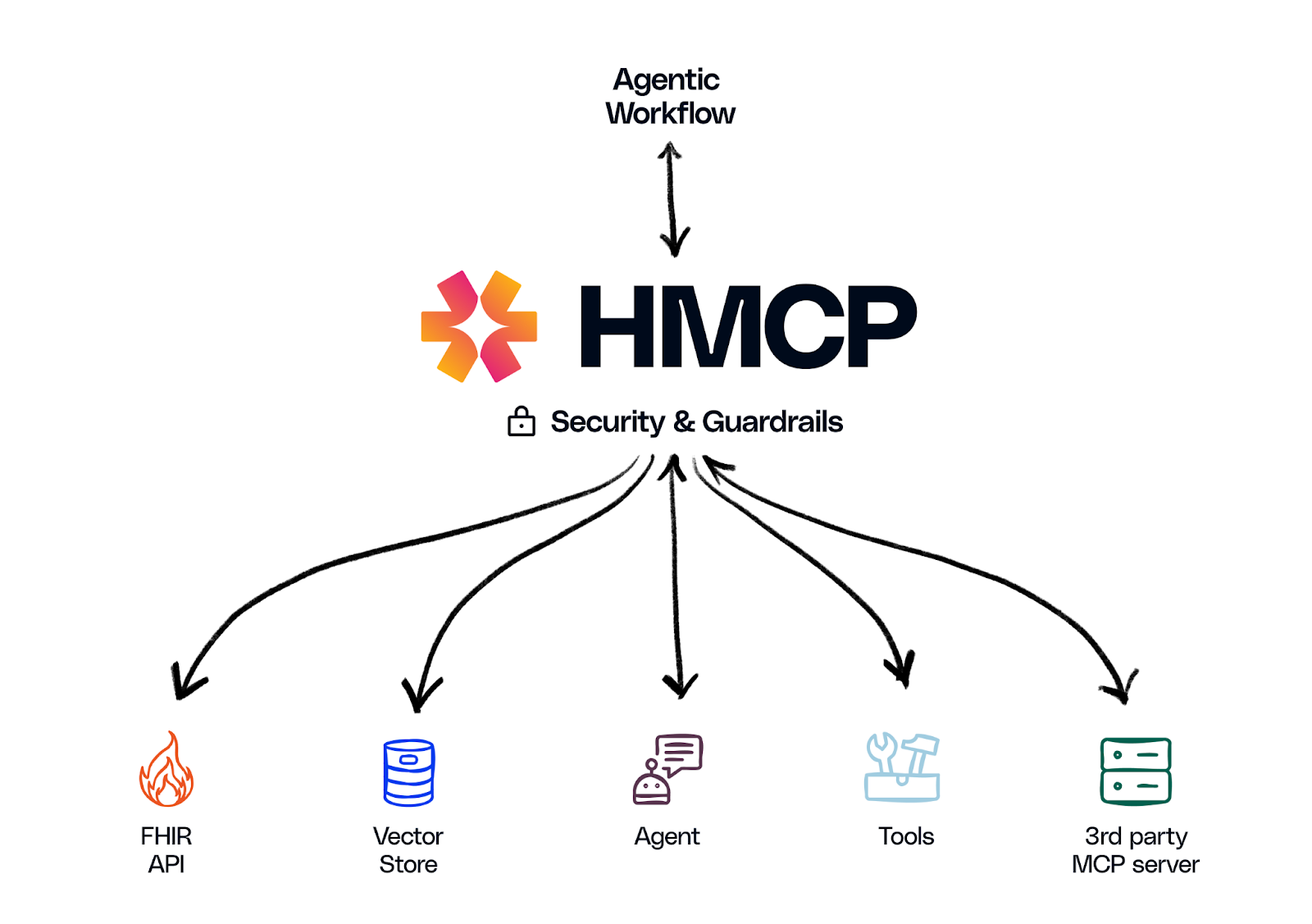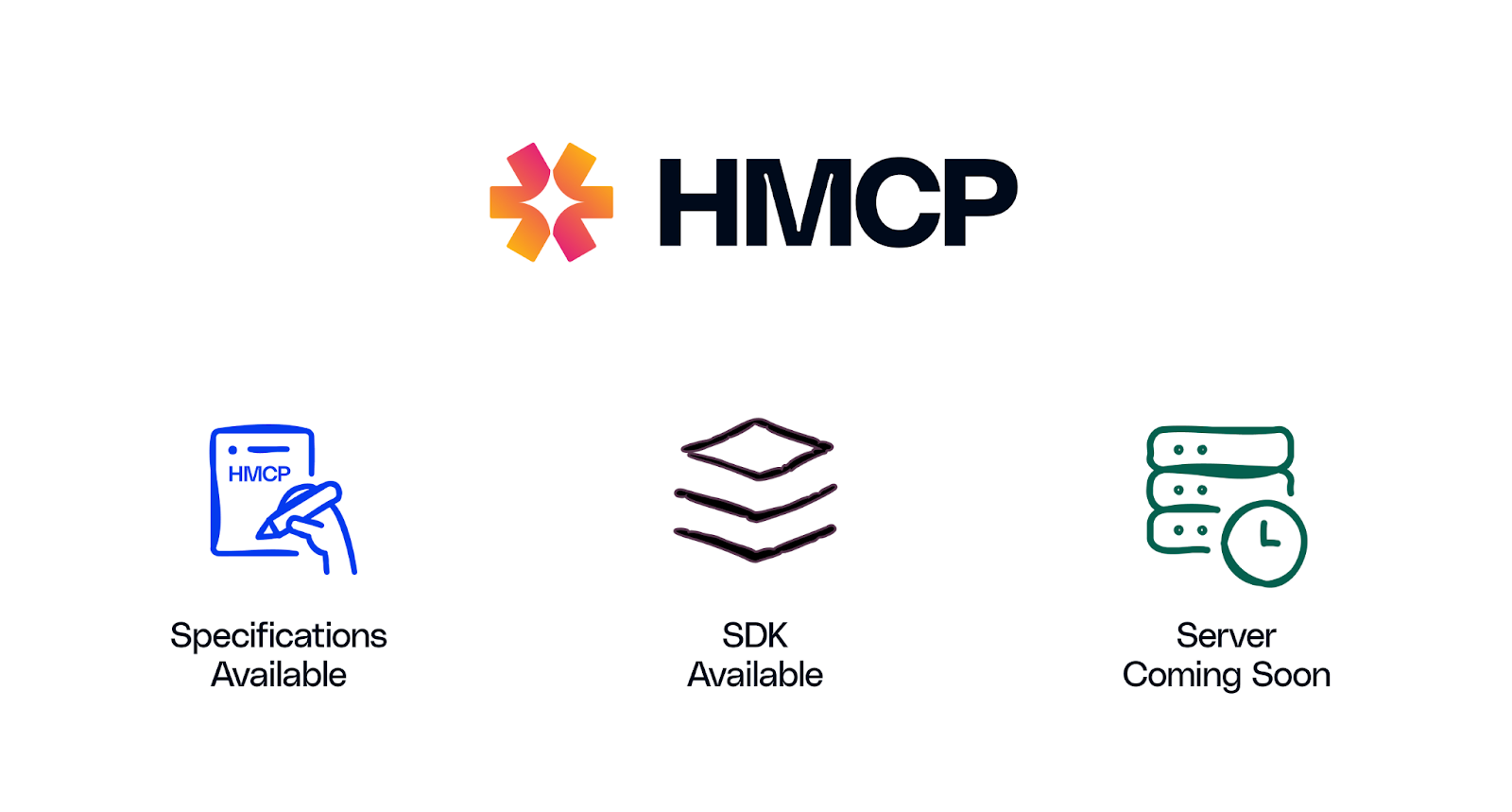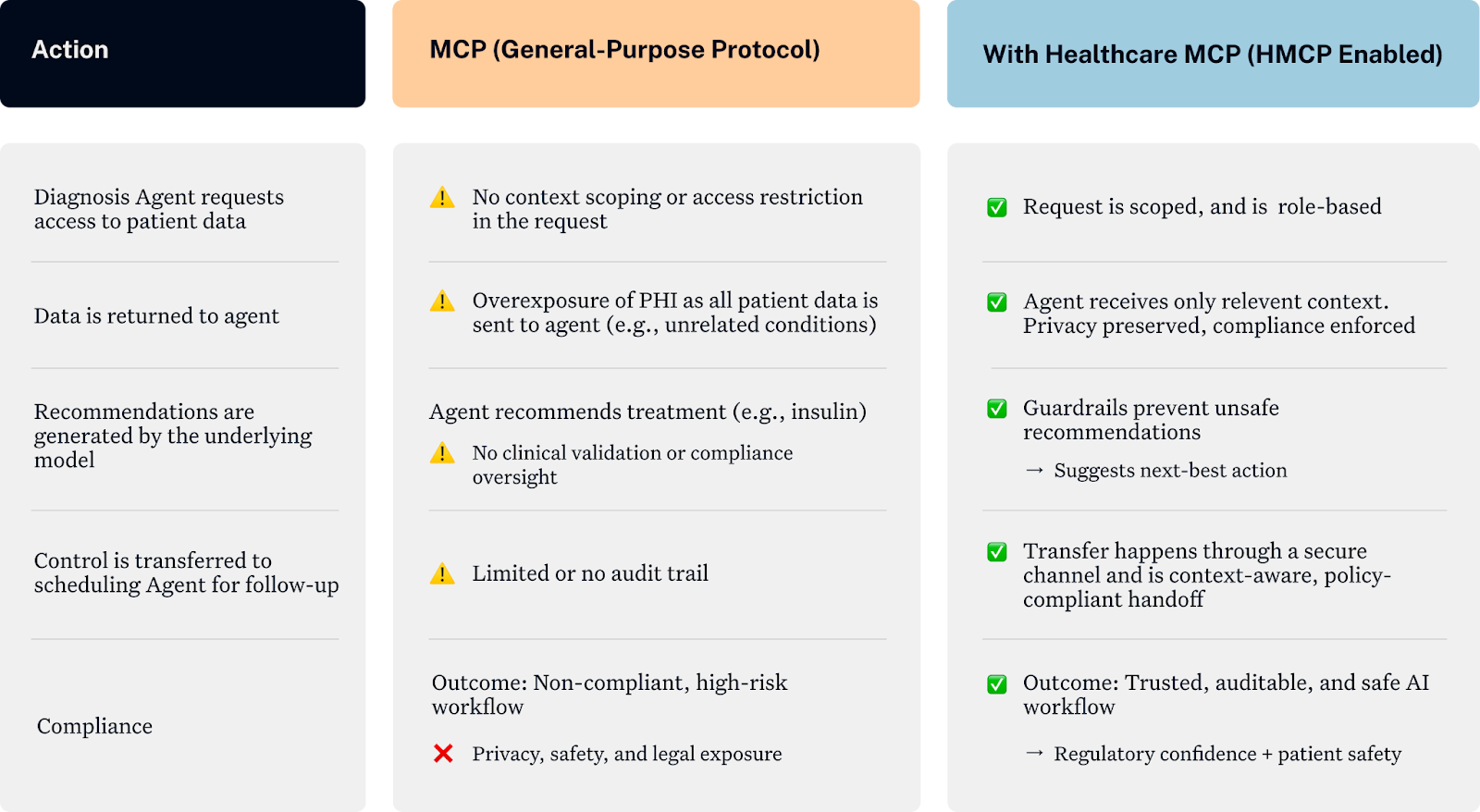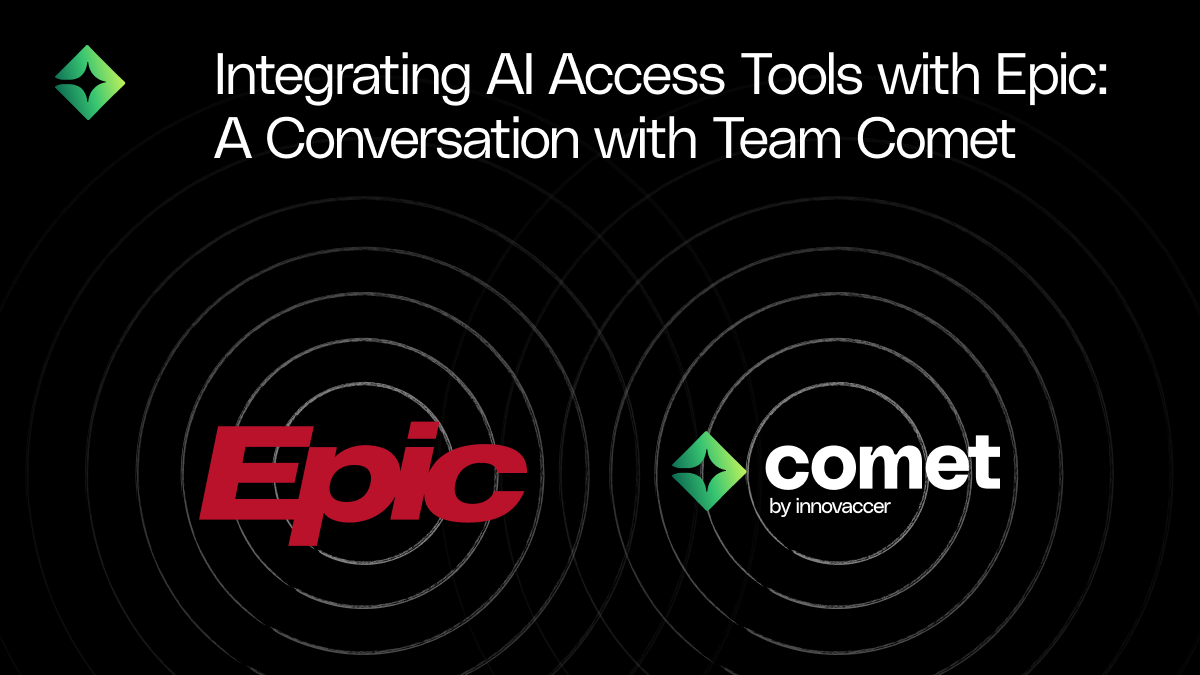Introducing HMCP: A Universal, Open Standard for AI in Healthcare

.png)
Healthcare is rapidly embracing an AI-driven future. From ambient clinical documentation to decision support, generative AI agents hold immense promise to transform care delivery. However, as the industry swiftly moves to adopt AI-powered solutions, it faces a significant challenge: ensuring AI agents are secure, compliant, and seamlessly interoperable within real-world healthcare environments.
At Innovaccer, we are proud to launch the Healthcare Model Context Protocol (HMCP). HMCP is a specialized extension of the Model Context Protocol (MCP) specifically crafted to integrate healthcare AI agents with data, tools, FHIR APIs, and workflows, all within a secure, compliant, and standards-based framework.
Why Healthcare Needs HMCP

Healthcare demands precision and accountability. AI agents operating within this domain must handle sensitive patient data securely, adhere to rigorous compliance regulations, and maintain consistent interoperability across diverse clinical workflows. Standard, generalized protocols fall short. That is why we developed HMCP.
Built upon the robust foundation of open source MCP (Model Context Protocol), HMCP introduces essential healthcare-specific capabilities by leveraging industry standard controls (OAUTH2, OpenID, Data Segregation and Encryption, Audit trails, Rate Limiting and Risk Assessment, etc.), to achieve:
- HIPAA-compliant security and access management
- Comprehensive logging and auditing of agent activities
- Separation and protection of patient identities
- Application of healthcare-specific operational guardrails
- Facilitation of secure, compliant collaboration between multiple AI agents
These enhancements are being designed to ensure that HMCP can meet the unique regulatory, security, and operational needs of healthcare environments.
Think of HMCP as the "Universal Connector" for healthcare AI, a trusted, standardized way to ensure interoperability.
Innovaccer’s HMCP Offering

To empower healthcare systems and developers to rapidly innovate while remaining compliant, Innovaccer is introducing the HMCP SDpaK, which includes:
- HMCP Specification: An open, extensible standard built upon MCP.
- HMCP SDK (Client + Server): Provides secure authentication, context management, and real-time enforcement of compliance guardrails, with built-in support for access control, encrypted data handling, and audit logging.
- Innovaccer HMCP Cloud Gateway:
- Registers agents, data sources, and tools
- Implements and manages policy-driven contexts and guardrails
- Supports patient identification resolution through EMPI
- Facilitates integration of third-party AI agents
HMCP in Real-World Action
Consider a real-world use case, a Diagnosis Copilot Agent, assisting a physician, powered by a large language model (LLM), connected to a patient data store and another scheduling agent. Diagnosis Agent attempts to provide diagnosis to help a physician for a patient by accessing patient data and then based on outcome, schedule a follow up.

Get Started with HMCP
Whether you lead a health system or are developing next-generation AI solutions:
- Engage with the open HMCP Specification
- Start developing with our comprehensive HMCP SDK
- Register for Innovaccer’s HMCP Cloud Gateway
- Collaborate to shape secure, responsible, and compliant healthcare AI solutions based on open standards
Healthcare deserves trustworthy AI. With HMCP, Innovaccer turns this vision into reality. Let’s collaborate to build it securely and responsibly.
Learn more about Innovaccer’s Healthcare Intelligence Platform / Healthcare MCP by visiting this link: https://innovaccer.com/request-a-demo-in


.png)






.avif)









.svg)
.svg)

.svg)

